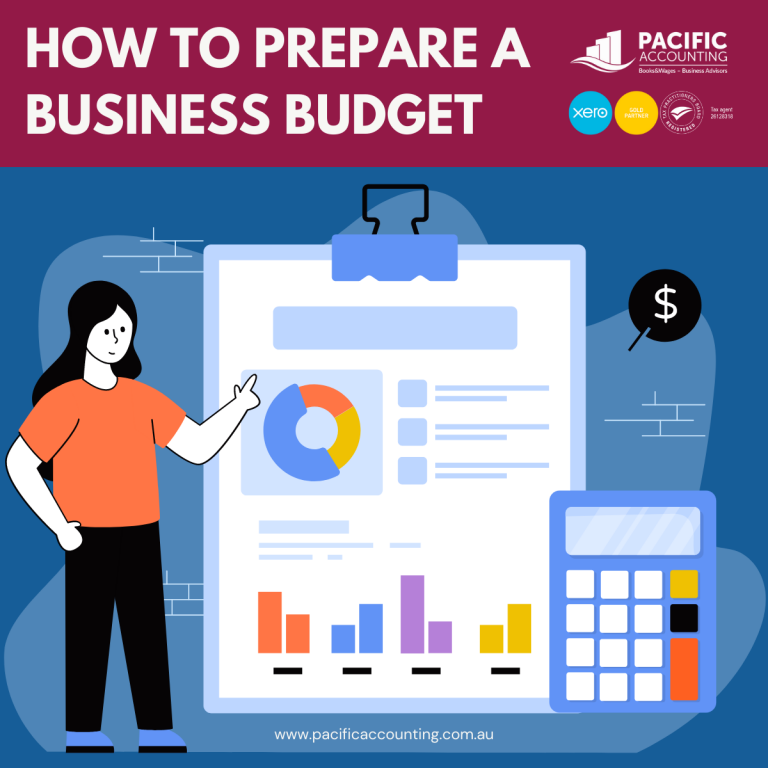
Having an up to date budget is a must if you want to build a thriving, sustainable business.
A budget is an important financial statement. It tells you how to direct your money to where it’s needed most.
Use your Budget to:
- Make sound financial decisions and set business goals
- Identify where to cut expenses and increase revenue
- Assist with finance applications for growing your business
But how do you create a budget?
- Choose a time frame for your budget, you might choose monthly, quarterly, or yearly.
- Examine your revenue and where it is coming from.
-
- Look backward at your existing business records and find all your revenue sources
- Find your average income, preferably calculated over at least the previous 12 months
- Add any known new contracts or agreements which will increase your turnover
- Work out your Fixed Costs.
-
- The term fixed cost applies to any cost that is necessary on a recurring basis
- Fixed costs might occur weekly, monthly or yearly
- Examples include salaries, rent, loans and insurance
- Determine your Variable Expenses.
-
- Variable expenses are those that change depending on how much you use the service
- Examples include utilities, supplies or materials, marketing, and wages
- Prepare Contingency Funds for one-off spend or unexpected costs.
-
- Prevent the unnecessary stress of an unexpected costs by making sure you have some extra cash on hand
- You might be tempted to spend any surplus of income on variable expenses, but put some aside into an emergency fund instead
- Bring it all together – once you have taken away your costs and expenses from your revenue, what you are left with is your profit (or loss).
-
- This Profit & Loss report (P&L) will show your historical data, use this to understand your business trends
- When examining your P&L, you’re looking for ways to explain the fluctuations and changes in your business.
Once you have a clear picture of your finances, you can use this to make the right financial decisions. In the red? You might try to cut your spending and focus on finding new clients or revenue streams. If your income is higher than your expenses, consider investing your profits back into your business, this will also help with your Tax Return.
The last step is monitoring your Budget against your Actuals. Use your budget as a tool to stay on track, understand your financial health and to have confidence in your decisions and planning. Analysing your budget will help you find seasonal patterns, these might be due to weather/season, school calendar, tourist patterns or economic patterns. Use this information to help run your business better and make decisions based on facts and figures—not on a hunch or guess.
As we are approach the 2-year anniversary of Covid-19 changing the world, it is more important now than ever for you to have a budget. Erratic trading and government support payments make it difficult to really understand the financial effects of the last two years, and we certainly don’t want to use those figures to plan for the future. Cash flow might be tight, and it is important to keep your figure in the pulse. The best way to combat all these challenges is with a budget.
Our VCFO Team specialise in budgets, as well as forecasting and cashflow reports. They can create a budget for you and help you monitor your budget against actuals. Contact any of our Virtual Chief Financial Officers (VCFOs) for more information on 1800 1800 98.




